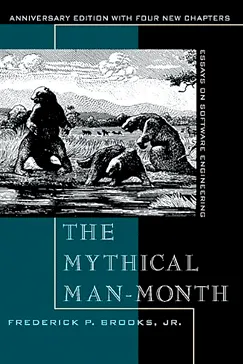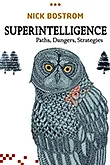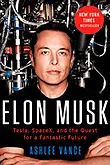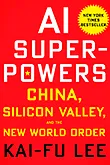Code your way to success with our list of the best programming books of all time, perfect for beginners and experts alike.
Clean Code
He is thus able to support clean, readable, and maintainable code through the art of writing software that is usable and not just functioning. He has thus emphasized good coding practices across such areas as naming conventions, formatting, error handling, and the principles behind an object-oriented approach. The author does not only explain but rather elaborates, with real and practical examples, the way to refactor mess into clarity with efficiency. This book is meant to be a guide for professionals who want to improve their coding skills so their work can be effective and elegant, and easily managed over time.C Programming Language
The book is quite a reference to C programming suitable for both the novice and the professional computer programmer. It elaborates on the fundamental concepts of data types, operators, and control flow, and also that of pointers and memory management. Through clear explanations and practical examples, readers will learn how to write efficient and effective C code. It is not the guide on only the C syntax; it dwells upon the good programming practices that one should adhere to. This, therefore, is one of the resources that are indispensable for anyone willing to master this powerful language.Deep Learning
Recommended by: Elon Musk, Andrej KarpathyThis book is about the bleeding-edge field of artificial intelligence and an introduction to deep learning – a subset of machine learning that has been groundbreaking for how computers learn from data. So, the book is a comprehensive introduction that brings us from basic concepts over architectures up to algorithms, where deep learning does its magic. The book's theory uproots readers from basic neural networks to the more complex structures: convolutional and recurrent networks, and the theory and practical applications of those. The book holds fundamental knowledge for a student, a researcher, or a professional on any level to start and propel the development, implementation, and optimization of deep learning models.The Pragmatic Programmer
It provides timeless strategies towards software development and equips programmers with tools to hone their craft. The guide is highly practical and pragmatic, urging the developers to adopt a like-minded mindset towards problem-solving and the management of projects. This concerns issues such as efficiency in code, simplicity of design, and automation, while at the same time championing continuous learning and being adaptable in the face of a world constantly changing with respect to technology. By intermingling this with stories and real-life situations, it will ignite in readers a sense of eagerness and responsibility in their work so that they will produce quality, maintainable code and one day build a satisfying career in software development.The Mythical Man-Month
Recommended by: Jeff Bezos, Larry EllisonIn this deeply influential exploration, Frederick Brooks Jr. tackles the most stringent and unsolvable problems of software engineering and project management. He actually coined "The Mythical Man-Month," where he deals with situations describing how adding more manpower to a late software project only makes it later. In a series of essays, Brooks has described the challenges of large-scale software development, the importance of communication within a team, and the need to develop software incrementally. This is a book that every person who ever works with software development really must read, a timeless advice on how to perform management of complex projects effectively.A Philosophy of Software Design
In this insightful work, the author goes into the depth of software design with a fresh way to approach the challenges. The true nature of good software architecture is unfolded through a set of thought-provoking principles and practical advice, guiding the reader through a voyage of understanding. Simplicity, the ills of complexity, and how strategic decisions within the design process lead to efficient, maintainable software are under focus. A must-read for both young and experienced developers, as it gives solid insight into creating a lasting software.Code Complete
This guide talks about the art and science of building software, providing practical advice in creating high-quality code. Topics range from design to coding, debugging, and testing. The author emphasizes clean and maintainable code, which goes together with strategies for it. Overall, the book is definitely a rather authoritative source of reference meant for any programmer at any level willing to heighten their coding skills while understanding precepts in software development. Ideal for those seeking to elevate their programming practices and create more efficient, error-free software.Peopleware
It suggests the potential of software development teams being unlocked, resting not solely on technical skills or methodologies but on an understanding and nurturing the human element. This thus presents a case for a workplace conducive to productivity, individually and motivatively aligned. It gives insight into avoiding managerial pitfalls, how to create a culture of innovation, and even building teams that are not only efficient but happy. The paper offers both the information and practical advice to managers about effective leadership with real-life examples, thus giving the idea on how to make teams work together in harmony.Structure and Interpretation of Computer Programs
Digging further into the heart of computer science, the content unfolds the principles of programming languages through Scheme, a dialect of Lisp. It emphasizes the importance of abstraction, software engineering, and algorithmic thinking in solving problems. It provides the readers with deep insights into how the programs are structured and how the concepts are put into practice through programming languages of all sorts, with a mixture of theoretical concepts and hands-on exercises. Suitable for those with the pursuit of in-depth understanding on the basics of computer science, this prepares for creativity and appropriateness in programming.Python Machine Learning
With leading the reader through the labyrinth of machine learning with Python, this book offers a comprehensive guide into this field. It covers the essential concepts and techniques from how to build, evaluate, and deploy machine learning models effectively. This course demonstrates implementations of algorithms in data analysis, natural language processing, and computer vision with real-world datasets and hands-on practices of algorithms over Python libraries like scikit-learn, TensorFlow, and Keras. It is designed for both novices and professionals, bridging theory with its practical implementation and empowering readers to take on their machine learning projects with ease.
List of top rated Programming books everyone should read. Best sellers only!















